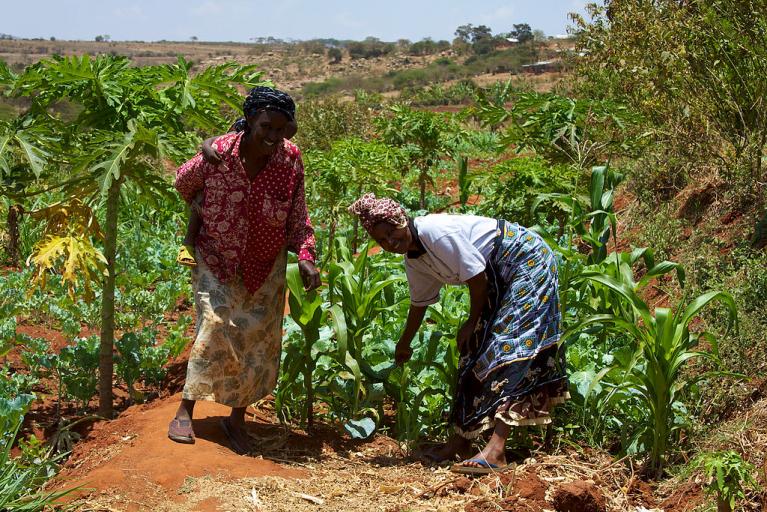Latest Resources

22 October 2024
ACB’s artist’ gallery – a celebration of artistic contributions
Over the years, a diverse range of artists and graphic designers have illustrated and designed the covers and content pages of our publications and our factsheets, and collaborated on the design of our logo and brand identity, as reflected on our website and communications collateral. To honour their contributions to the ACB, we’ve collated some […]

25 February 2020
Insights from farmer dialogues in Kalulushi, Zambia
In 2019, the African Centre for Biodiversity (ACB) co-hosted four farmer exchanges in Zambia. The first was in Kalulushi, Copperbelt Province, in partnership with the Zambia College of Horticultural Training (ZCHT) Chapula, Kasisi Agricultural Training Centre (KATC), and the Zambia Alliance for Agroecology and Biodiversity (ZAAB). ACB Advocacy and Research Officer Rutendo Zendah gives an […]

16 January 2019
Africa Group captured by colonial medicine, agribusiness and US military interests on gene drives...
On the pretext of supporting scientific innovation for malaria eradication, African countries vociferously defended a techno-fix that does not address the wider determinants of malaria – but rather, represents the changing face of colonial medicine and threatens the biodiversity of an entire continent. At the UN’s recent Convention on Biological Diversity (CBD), a proposal to […]

30 October 2018
Reflections on ITPGRFA, UPOV 1991 and South Africa
Recently the Department of Agriculture, Forestry and Fisheries (DAFF) held national consultations on whether South Africa should accede to two international agreements related to seed: The International Treaty on Plant Genetic Resources for Food and Agriculture (ITPGRFA, or the Treaty) and the International Convention on the Protection of New Varieties of Plants (UPOV) 1991. The […]

14 June 2018
Restrict, regulate and reduce corporate power in South Africa’s food system
I attended a dialogue on corporate ownership in South Africa in May, in Tshwane, hosted by Trade and Industrial Policy Strategies (TIPS). There was strong government representation at the dialogue, including from Treasury; Trade and Industry; Minerals and Energy; and Planning, Monitoring and Evaluation. Someone from the EU was also there. Corporate concentration is a […]

6 June 2018
Bayer opposes black economic empowerment in purchase of Monsanto
The Competition Tribunal announced the finalisation of the merger between Bayer and Monsanto in South Africa in May. Bayer had taken the original conditions imposed by the Competition Commission in 2017 to the Tribunal for reassessment. These included selling businesses to black economic empowerment (BEE) compliant companies. Bayer has claimed confidentiality on the conditions, making […]

15 December 2017
Harmonised corporate seed laws in Africa: Where does this leave smallholder farmers?
The expansion of the corporate seed market, embedded in the green revolution agenda in sub-Saharan Africa is progressing very fast. This expansion is going hand in hand with regional policies and regulations – in a process also known as seed harmonisation – that will enable facilitate trade across national borders. This has been the case […]

19 September 2017
Erosion of farmers’ seed and agricultural systems in Tanzania
There are no simple answers when it comes to predicting the future of African food systems. Across the continent, the push to commercialise African agriculture to feed the growing and urbanising population, increase incomes, and reduce poverty is well known. However, this ‘solution’ is also heavily criticised for its ineffective, inappropriate and misdirected approach for […]

3 July 2017
Resistance is fertile! Farmers rise up against South Africa’s corporate seed laws
Calls to decolonise our seed system at Gauteng public hearings on the Plant Improvement and Plant Breeders’ Rights Bills. Are there alternative systems that put farmers at the centre, do not reduce genetic and agricultural diversity, and support agroecology, seed and food sovereignty and resilience? South African smallholder farmers, consumers, academics and civil society at […]
